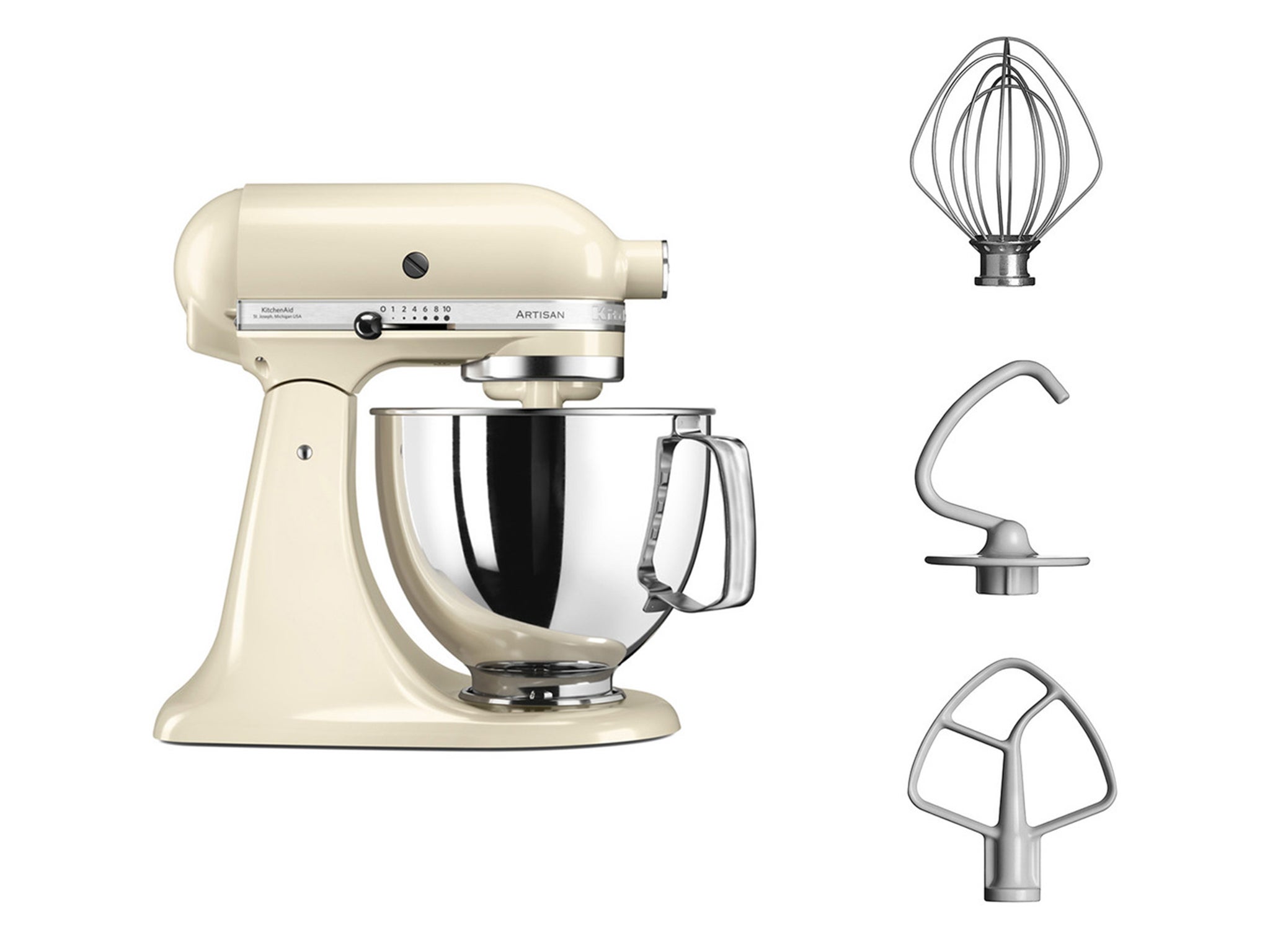
The Independent's journalism is supported by our readers. When you purchase through links on our site, we may earn commission. Why trust us?
Your guide to buying a KitchenAid stand mixer, from attachments to how to get the best price
Weather you want to make cakes, knead doughs or shape pasta, this award-winning brand has you covered
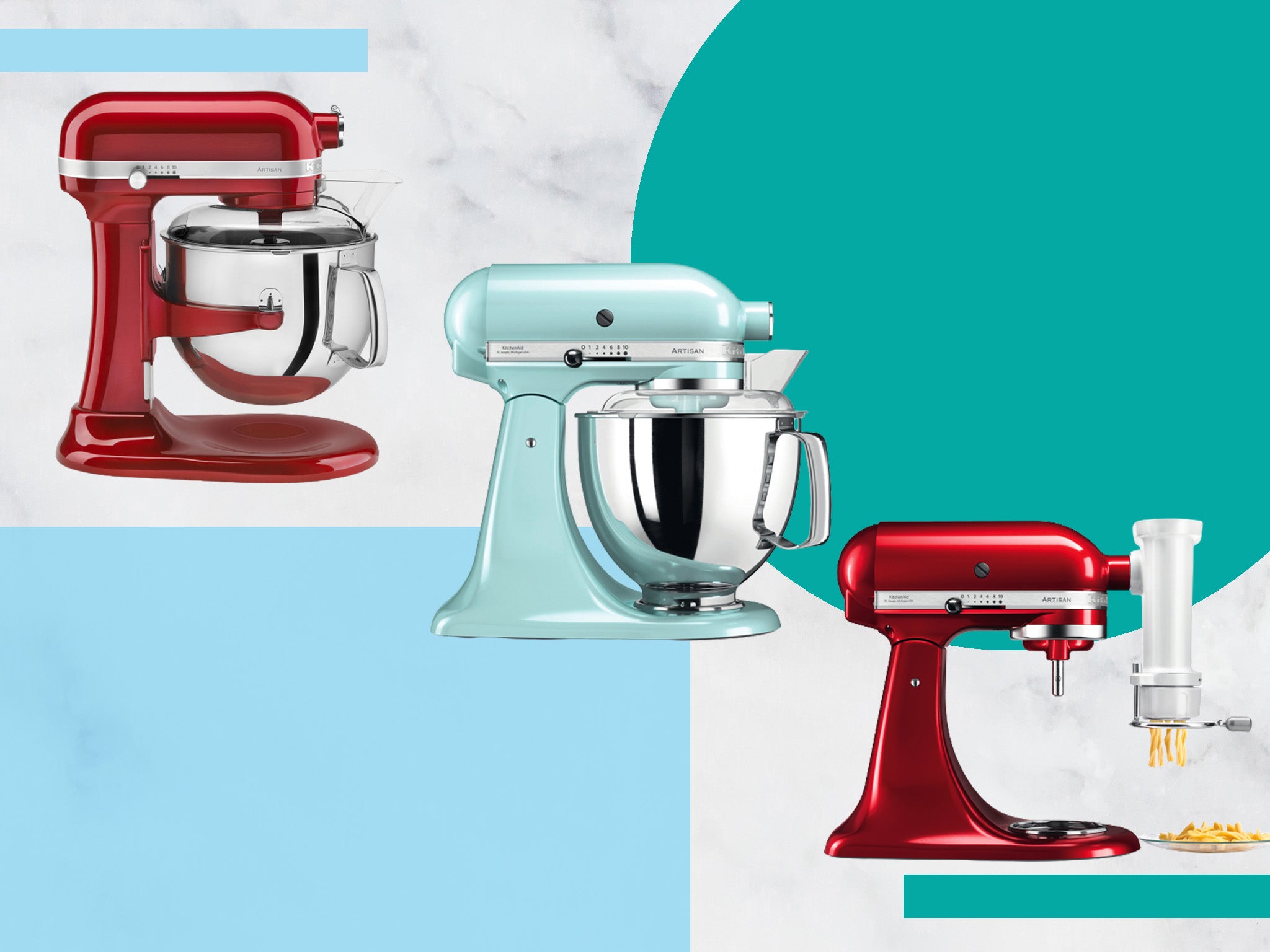
A KitchenAid stand mixer is considered a holy grail in the baking world – and that’s not just because they line the worktops in the Great British Bake Off tent and Nigella Lawson’s kitchen.
Rather, it’s a sturdy and durable home appliance that is made to last. It takes the hard work out of just about any cooking and baking related task. Need to whip eggs to stiff peaks? No problem. Knead dough? Easy. Make a light and airy cake? A breeze.
These are not the only joys of having one of the brand’s stand mixers on hand though. In fact, there’s an extensive range of accessories that only add to its versatility, including a food processor (£179.99, Amazon.co.uk) and pasta press (£165, Kitchenaid.co.uk), which work seriously well.
To help you decide which mixer is best for you, we’re here to demystify the world of KitchenAid and answer all your burning questions from the difference between the models and the best attachments to how to get the best price and warranty details.
Luckily for you, we’ve been testing and trialling our KitchenAid mixer for a long old time, so we feel equipped with the knowledge to tell you everything there is to know about the leading kitchen appliance. You’re welcome!
Read more:
What is the difference between the KitchenAid stand mixers?
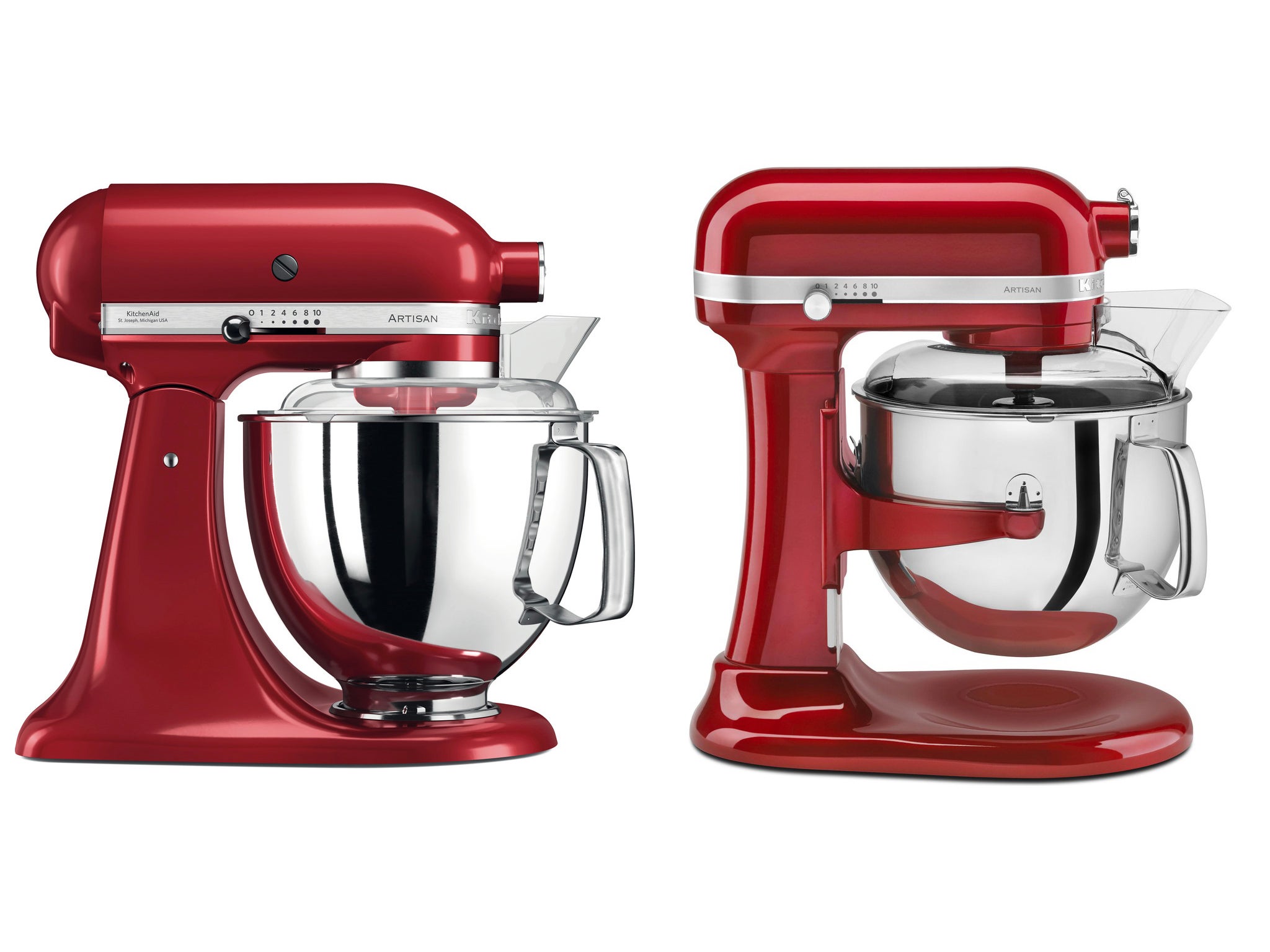
There are two mixer types: a tilt-head mixer (£499, Kitchenaid.co.uk) and a bowl-lift mixer (£699, Kitchenaid.co.uk) – the main difference between the two is the way in which you access the bowl.
A tilt-head mixer is the traditional design – the head unlocks and tilts back to give you easy access to the mixing bowl and for clipping in attachments. These are generally smaller and shorter and are best for home cooking and baking. Within this category, there are two models: classic (£349, Kitchenaid.co.uk) and artisan (£499, Kitchenaid.co.uk). The main differences here are that the classic is less powerful, with a motor of 275 watts compared to 325 watts and it has a smaller capacity (4.3l compared to 4.8l). There are also fewer colours to choose from (only two compared to 14 with the artisan mixer), plus, the bowl does not have a handle and there is no pour shield.
Bowl-lifts mixers are designed so you can slide the bowl in and out of the machine. On these models, the head is stationary and a lever raises the bowl up to the mixer, so the attachments are in contact. These are typically taller, heavier and more powerful than their counterpart and are best for professionals.
Which KitchenAid stand mixer is best? And which should I buy?
In short, as for which one you should buy, if you’re a home baker and cook, the tilt-head artisan mixer is perfect. It’s powerful and sturdy. If you’re looking for heavy, professional use, the bowl-lift mixer is the one for you.
How to use a KitchenAid stand mixer
The joy of a KitchenAid stand mixer is they are incredibly easy to use. To get started, make sure it’s positioned on a flat, sturdy surface. Select the attachment you require – there are three main accessories: a flat beater, which is best for most mixing, stirring and blending; a whip, great for whisking and whipping ingredients; and a dough hook for kneading. Line the pin on the shaft with the notch on the accessory and click it into place by turning it counterclockwise.
You’ll then need to make sure your mixing bowl is firmly in place – this will differ depending on whether you’re using a tilt-head or a bowl-lift model. For the former, align your bowl into the clamping plate at the base of the machine, twisting it clockwise to secure it into place. Whereas for the latter, you simply need to put the handle into the down position, put the supports over the pins and press down on the bowl until you hear it snap into the spring latch. To raise the bowl, rotate the handle upwards to the position.
Finally, to turn your mixer on, if you have a tilt-head design, lower the head and make sure it’s locked into place. If it’s a bowl-lift, raise it into position using the lever. Simply, slide the speed lever to the first position to turn the machine on and slowly adjust the speed to make the attachment go faster.
What is the warranty on KitchenAid stand mixers?
Your KitchenAid stand mixer is built to last, but of course sometimes they do break. According to KitchenAid’s guarantee policy, you are entitled to the following...
For up to to 30 days after your purchase, if your product is faulty, you can get an immediate refund. While for up to six months, if it can’t be repaired or replaced, you can get a full refund. Finally, for up to six years, if your product does not last a reasonable length of time you may be entitled to some money back.
What do I do if my KitchenAid stand mixer breaks?
This very much depends on why your KitchenAid has broken, there are a number of great resources online that can guide you through the problem you may have. But, our top advice is to contact KitchenAid directly and see if the warranty covers you.
How to get the best price for a KitchenAid stand mixer?
Owing to their reputation as being one of the best stand mixers, they are a great investment that will repay you in dough and cakes to come, but they don’t come cheap. Unfortunately, discounts on KitchenAid stand mixers are few and far between, so the best time to get one at its most competitive price is usually during big shopping events, such as Black Friday and Amazon Prime Day.
The best KitchenAid stand mixer and attachments to buy now
From tilt-head stand and bowl-lift stand mixers to pasta attachments and blender parts, these are the best KitchenAid stand mixers and accessories you need to know.
KitchenAid 5KSM125 artisan tilt-head, 4.8l

Arguably the most popular KitchenAid stand mixer, it’s a mainstay on TV cooking shows for a reason – it performs superbly well, yet still has the same features it had when it was first incepted in the Thirties, notably the old-fashion speed levers. This set comes with all the essentials: a 4.8l stainless steel bowl, a dough hook, a wire whisk and a flat beater, meaning you’ll be good to go as soon as it arrives.
KitchenAid 5KSM175PS artisan tilt-head, 4.8l
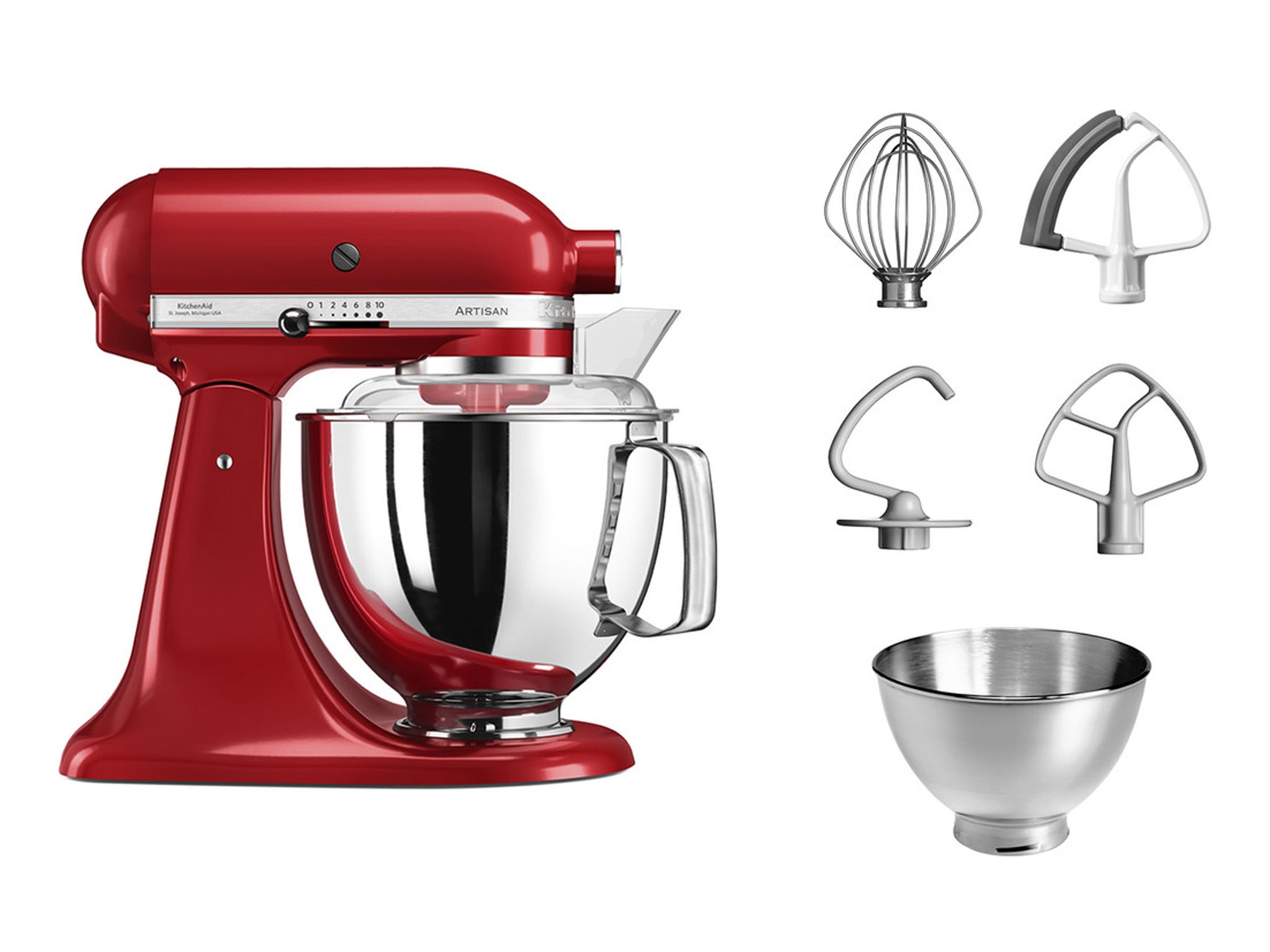
While still a tilt-head model, this one comes with an extra 3l stainless steel bowl, a flat beater and a pouring shield. There’s also a whole range of colours to choose from and you can personalise your own mixer by adding an extra bowl and even getting it engraved on the KitchenAid website – a particularly nice touch if you’re buying it as a gift.
KitchenAid 5KSM185PS artisan tilt-head, 4.8l
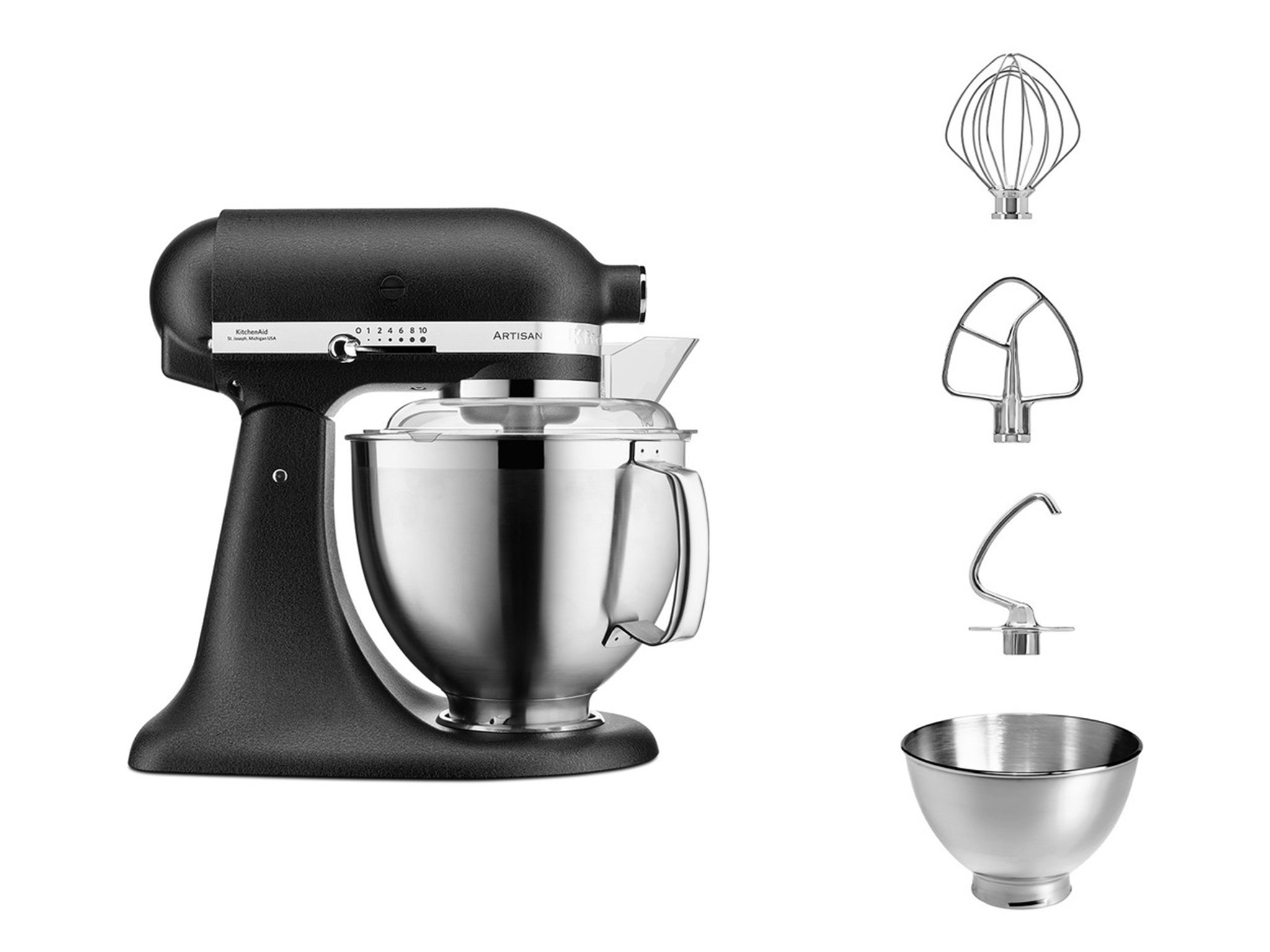
For a totally premium option, it’s got to be this number with its higher quality finish than its counterparts. You may have spotted Nigella using the copper finish mixer (£799, Kitchenaid.co.uk) in her At My Table series. A real investment, but most definitely worth it.
KitchenAid 5K45SS classic tilt-head, 4.3l
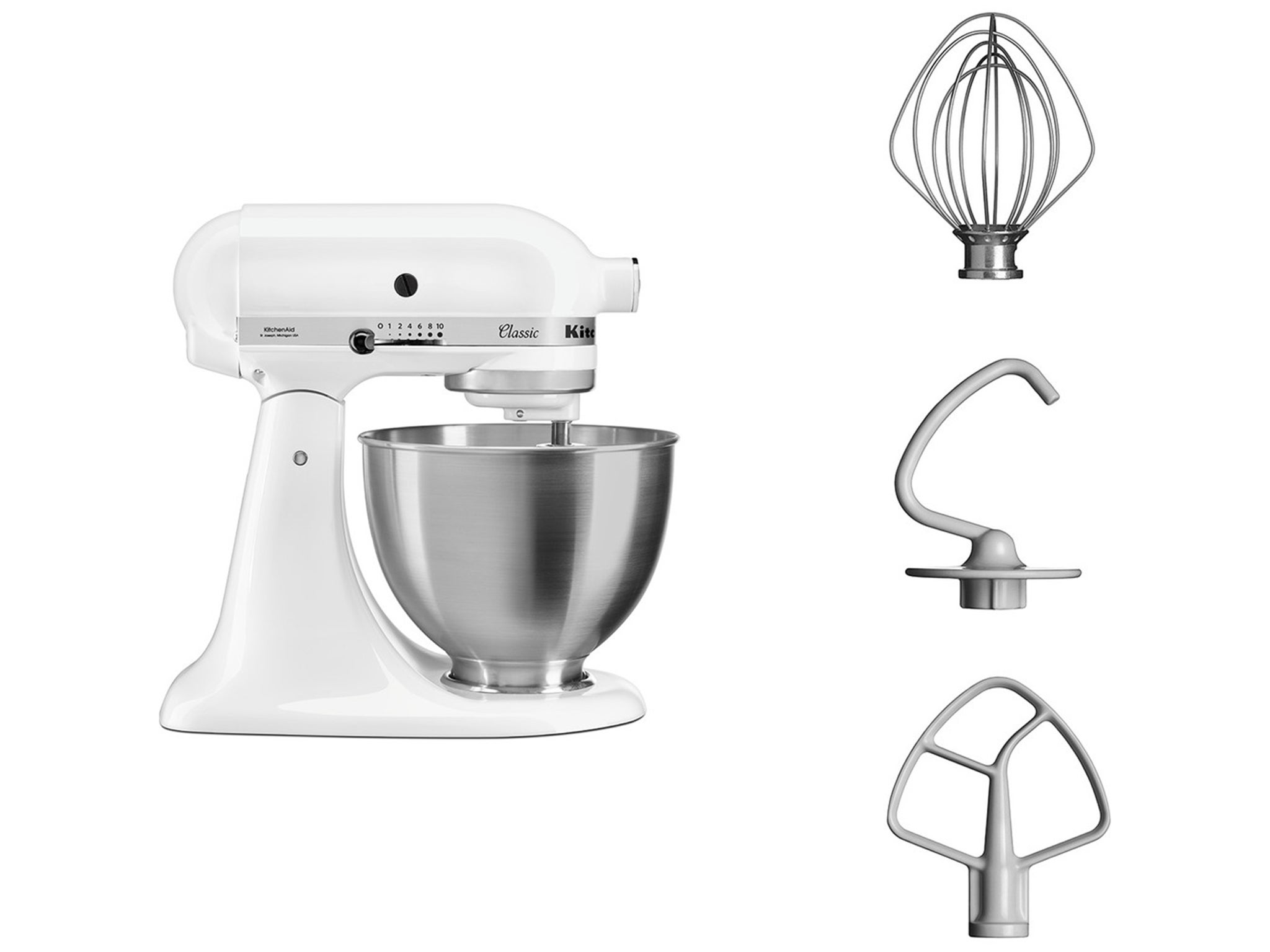
A popular entry-level model, the classic tilt-head machine has a robust build and a timeless design. It differs from the artisan machines in that it has a smaller capacity (4.3l) and is less powerful, but still performs phenomenally well. In the box, you’ll find a dough hook, a wire whisk and a flat beater. An absolute kitchen essential that will stand the test of time.
KitchenAid 5KSM7580X artisan bowl-lift
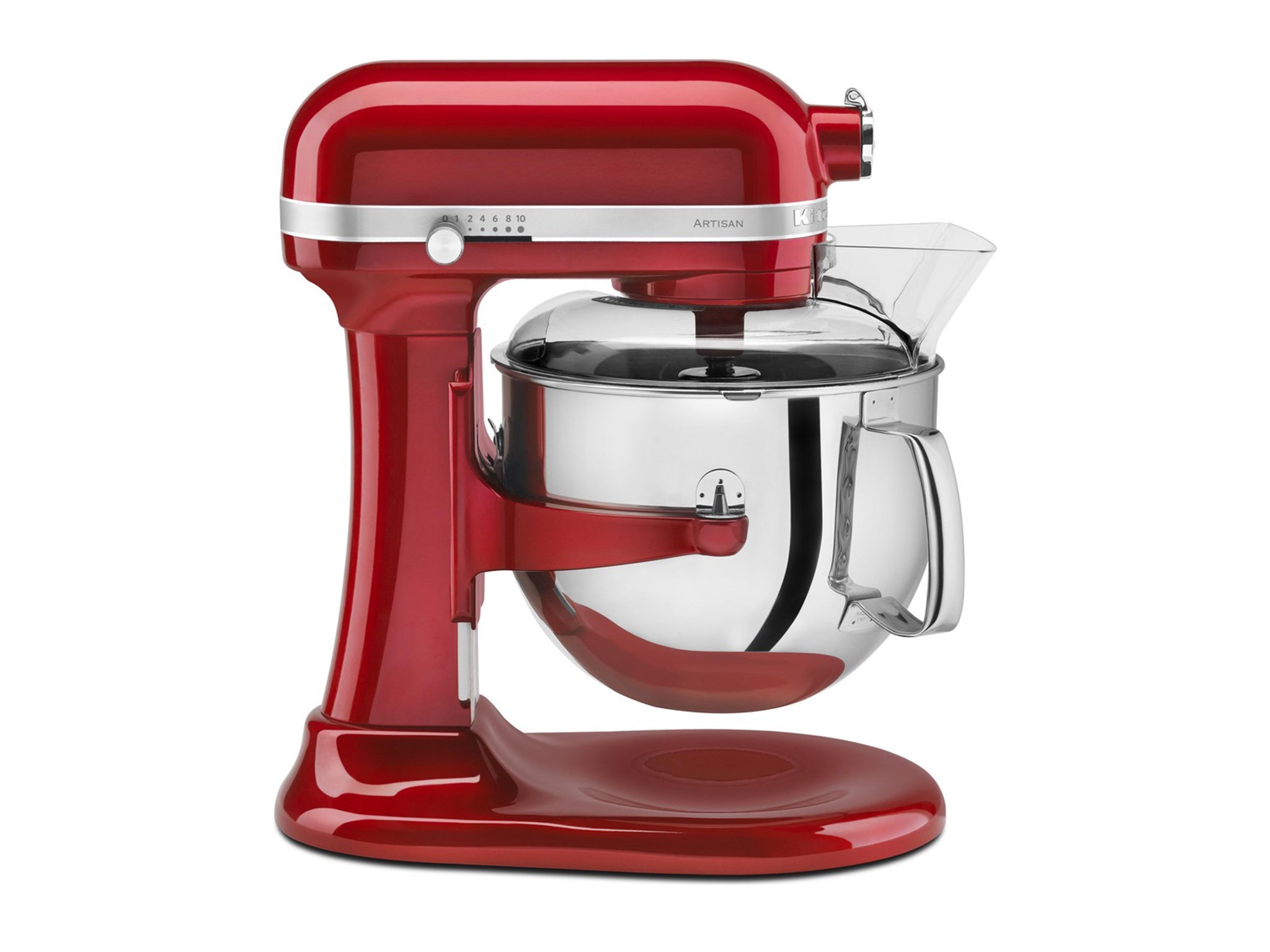
Boasting 10-speed settings, this hefty machine is a must-have for heavy loads and baking in bulk. Having tested this model, we can vouch for the fact the 6.9l bowl handles large quantities with ease. It is more costly than KitchenAid’s classic or artisan models, but it’s still got the power (500 watts in fact).
KitchenAid pasta press
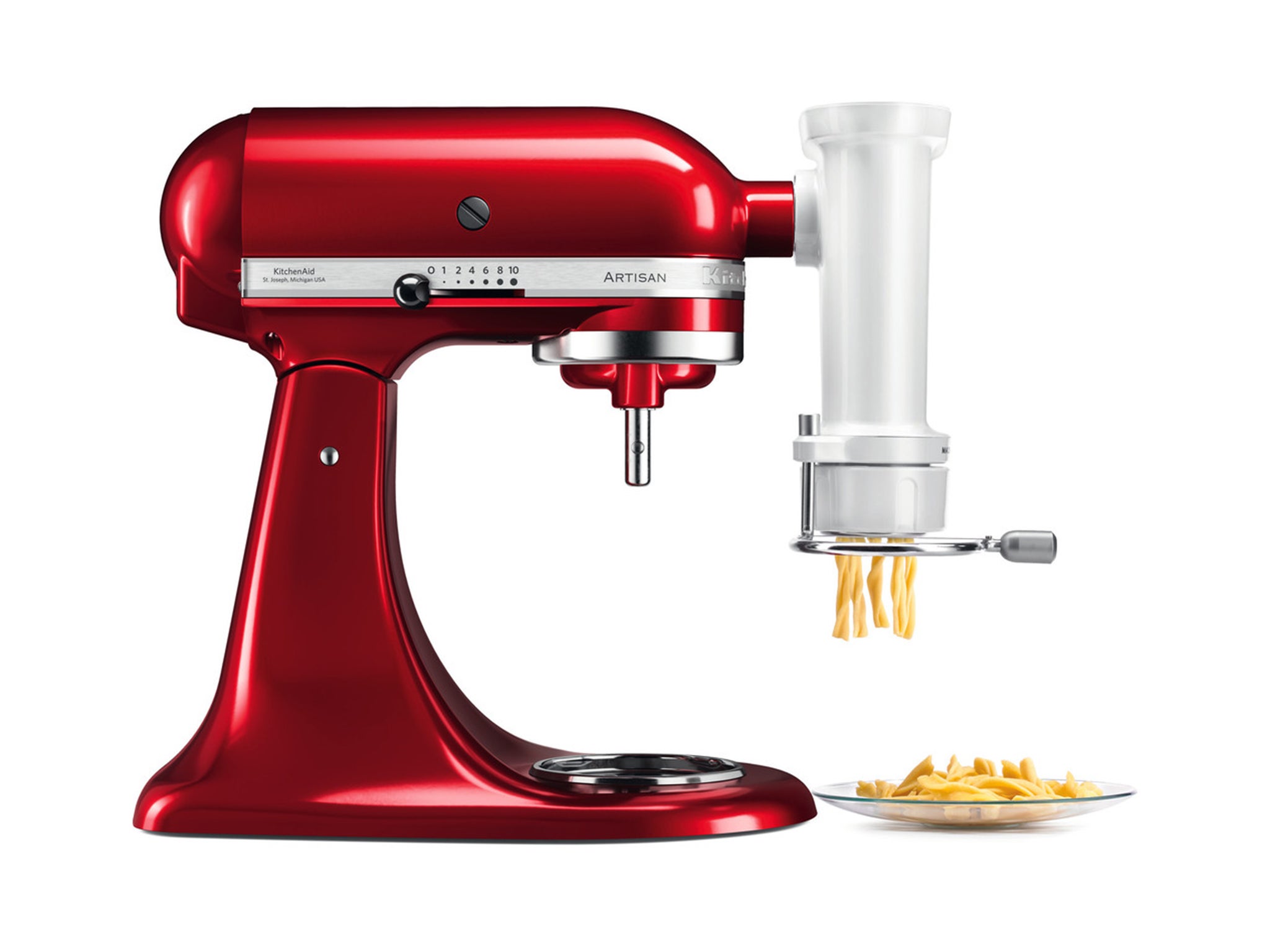
We’ve been lucky enough to try a whole host of KitchenAid stand mixer attachments, but this pasta attachment remains a stand-out. It works by attaching to the front of your stand mixer and is then powered by the appliance.
It’s just one attachment but has six different pasta shapes – including spaghetti and fusilli. For a great activity and even greater results, we’d recommend extending what your KitchenAid can do with this nifty piece of equipment. Plus, you’ll make nonna-worthy pasta in no time at all.
KitchenAid 5KSMPRA pasta sheet roller and cutter
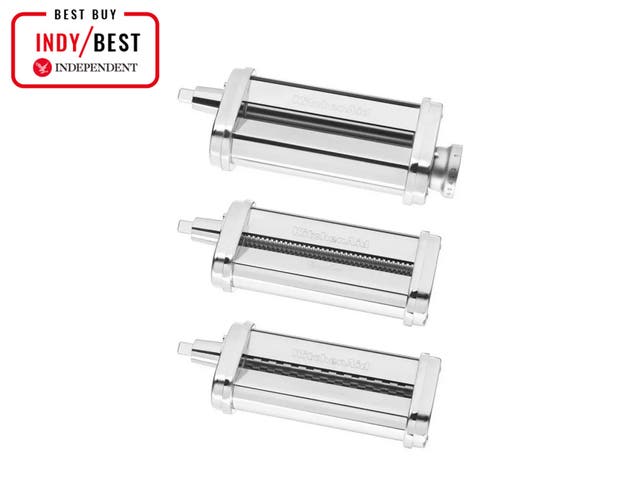
Much like the aforementioned pasta press (£165, Kitchenaid.co.uk), your KitchenAid will turn the rollers for you, “leaving both hands free to feed the pasta through and catch it when it comes out.” This set took the top spot in our review of the best pasta makers with our writer praising it for being “a no-brainer.”
With “very little effort or time expended”, your trusty “KitchenAid will also get you most of the way there with your dough.” Another must, as is this pasta dryer (£50, Kitchenaid.co.uk), which will make the whole experience even easier (otherwise you’ll have pasta hanging over chairs).
KitchenAid 5KSM2FPA food processor attachment
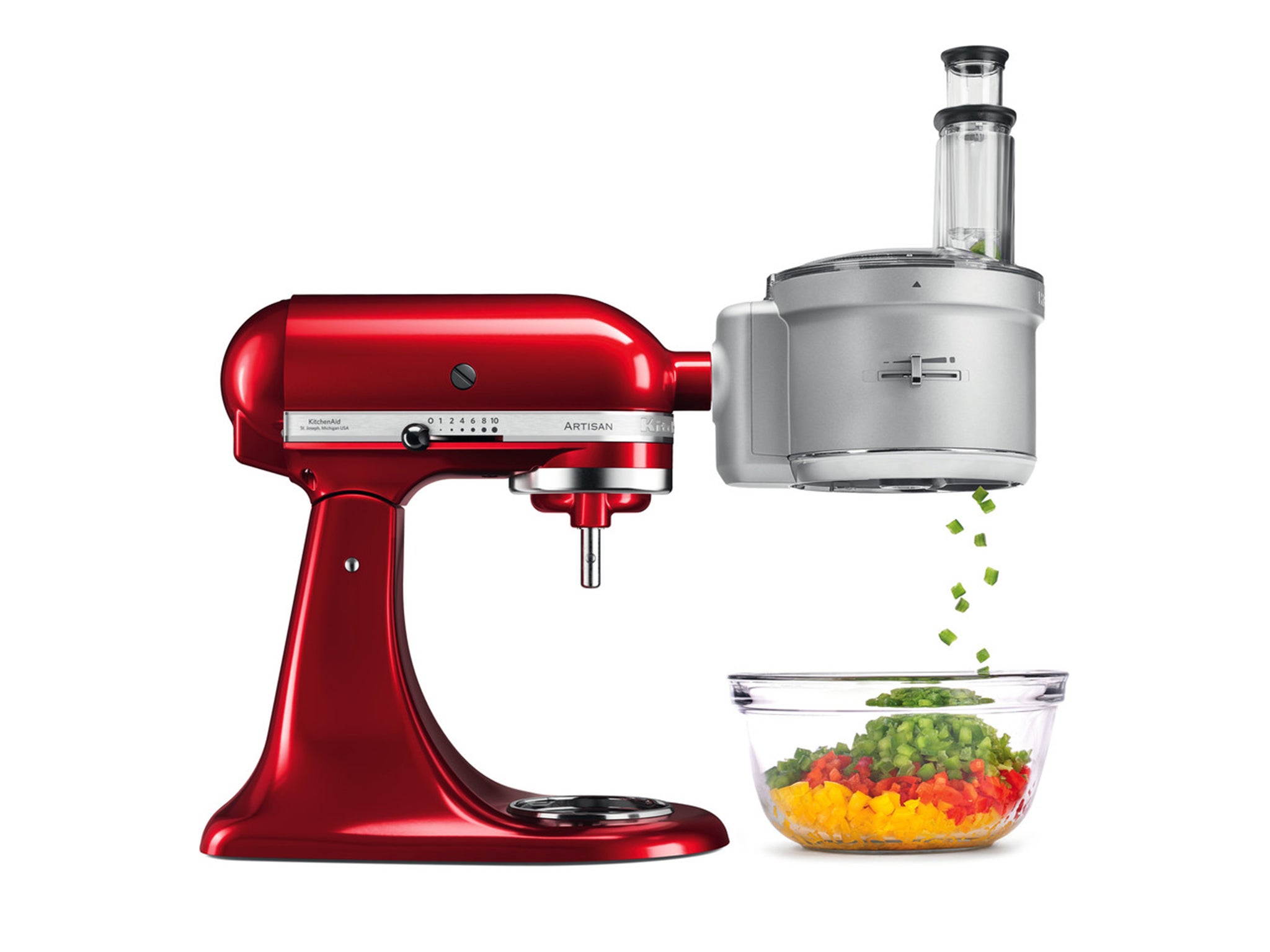
The KitchenAid food processor (£119, Kitchenaid.co.uk) took the top spot in our guide to the best, so you can trust that this attachment is a worthy investment. Much like the other accessories, it clips onto the front of your mixer with ease. As for its performance, it works like a dream – slicing, dicing, shredding and julienning. While it doesn’t come cheap, it does save the need for investing in a separate food processor.
KitchenAid 5KSM1APC spiralizer
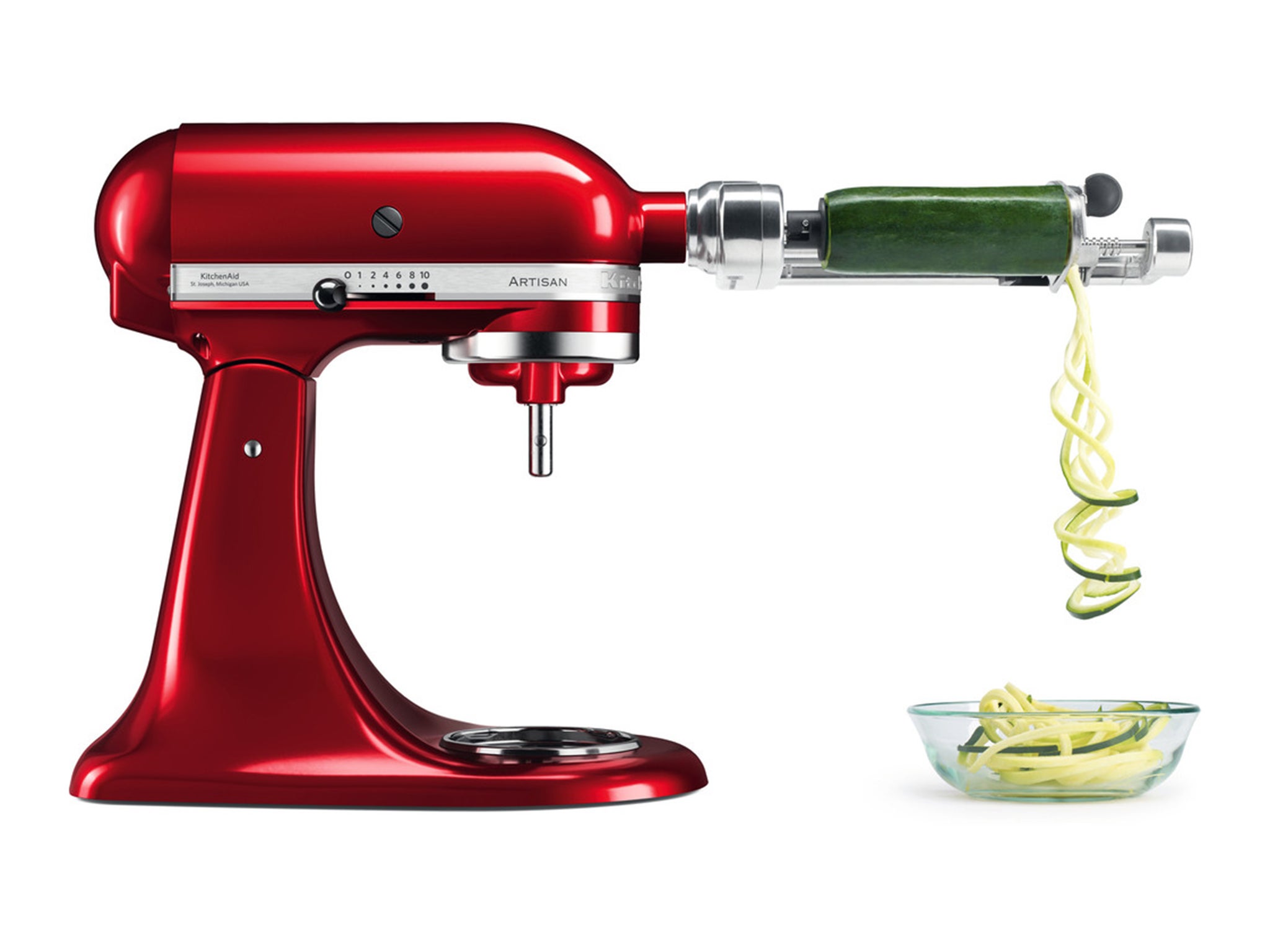
KitchenAid stand mixers don’t just make light work of your baking tasks, but with the right accessories, they can make just about anything easy. This handy tool has five different attachments, offering 13 different possible combinations of cutting styles. We can vouch for how easy it is to use – our courgetti never looked so good.
KitchenAid ice cream maker 5KICA0WH
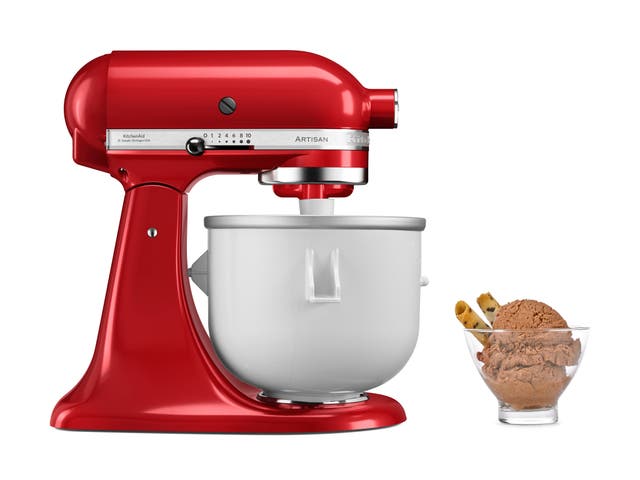
If you’re a huge fan of ice cream (and really, who isn’t?) then this whizz of an attachment is for you. Featuring in our guide to the best ice cream makers, our writer said: “The large bowl holds a generous 1.9l of ice cream and must be frozen for up to 15 hours first so you’ll need plenty of freezer space to squeeze it in.” Ice cream took around “half an hour but we also made delicious sorbet, frozen yoghurt and even a strawberry slushie.”
KitchenAid slow juicer and sauce attachment 5KSM1JA
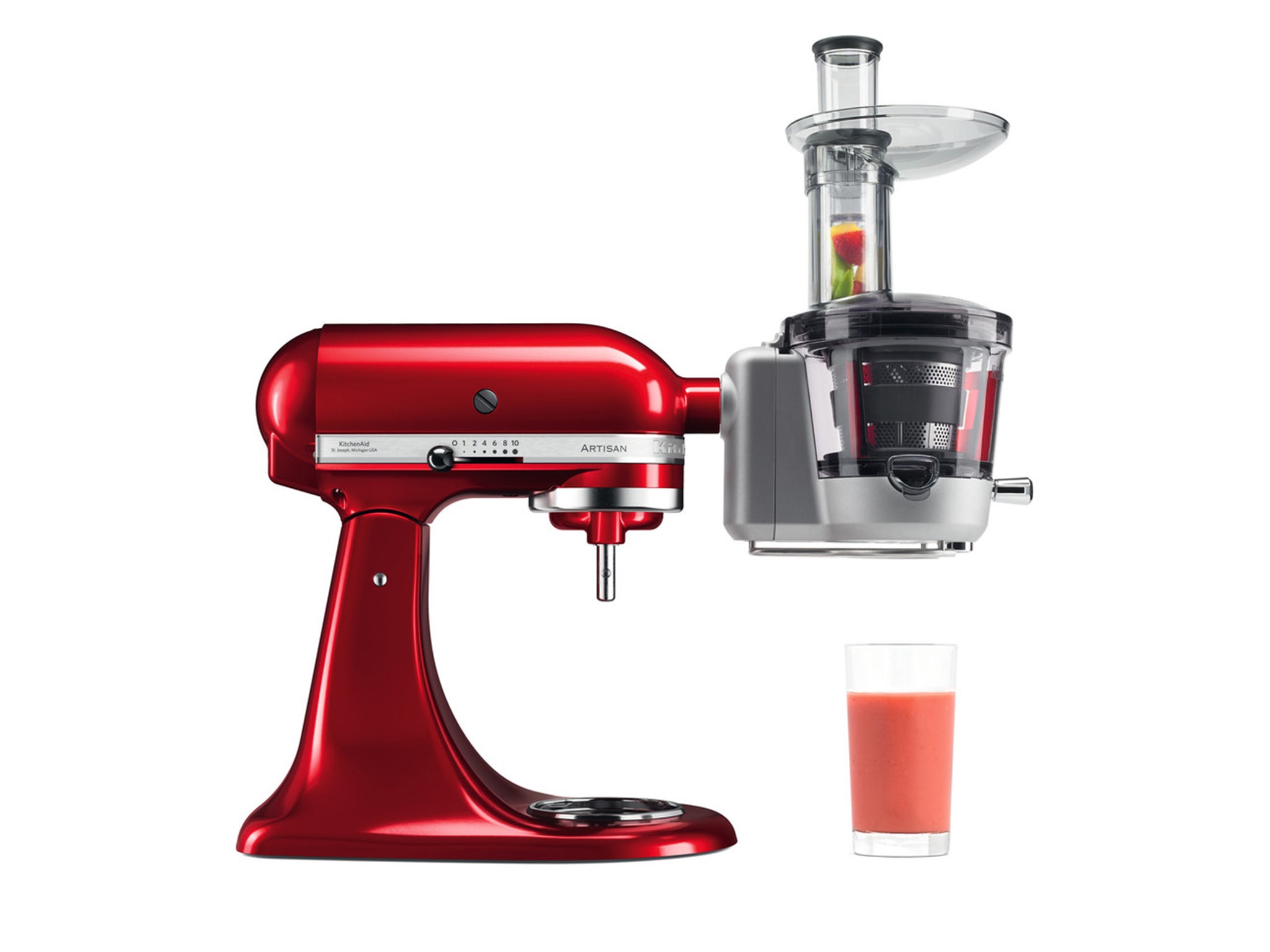
We told you there’s an attachment for every one of your needs. This can make fresh fruit juices, purée and jams, and herby sauces in a matter of minutes. All you need to do is roughly cut your fruit, veg or herbs before putting it down the tube, plus, there are three pulp screens depending on the texture you want. We found this a great way to get all your five-a-day in one hit.
Voucher codes
For discounts on KitchenAid stand mixers and other home appliance offers, try the links below
Looking for more advice when it comes to kitchen appliances? Read our guide to the best stand mixers
